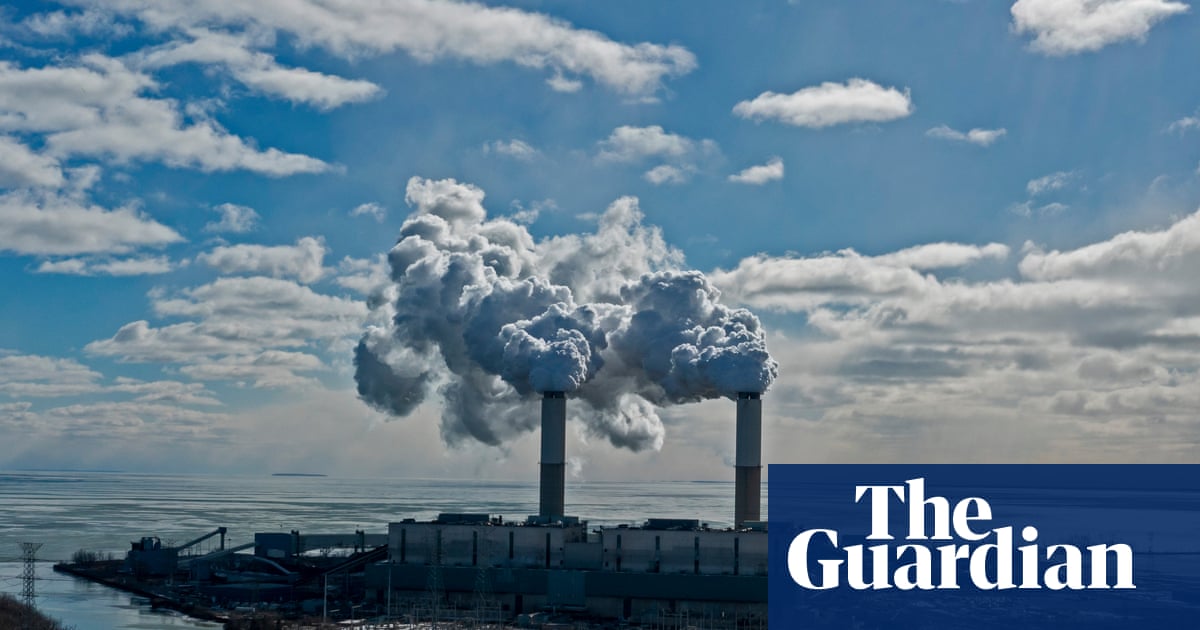TheTrump administrationis moving to keep open twoMichigancoal plants that emit about 45% of the state’sgreenhouse gas pollution, which opponents say is an indication of how the US president plans to wield his controversialnational energy emergencyexecutive order.
Already, the US Department of Energy (DoE) has ordered the JH Campbell coal plant on LakeMichiganto remain open beyond its 31 May closure date, while the administration is expected to prolong the life of the Monroe power plant on Lake Erie, currently scheduled to begin closing in 2028.
Opponents say the order has little support in Michigan, could cost ratepayers hundreds of millions of dollars, and is ideologically driven. The state’s utilities have said they did not ask for the plants to stay online, and theTrump administrationdid not communicate with stakeholders before the order, a spokesperson for the Michigan public service commission (MPSC), which regulates utilities and manages the state’s grid, told the Guardian.
“The unnecessary recent order … will increase the cost of power for homes and businesses in Michigan and across the midwest,” the chair of the MPSC, Dan Scripps, said in a statement. “We currently produce more energy in Michigan than needed. As a result, there is no existing energy emergency in either Michigan or [the regional US grid].”
The massive and ageing facilities also release high levels of carbon dioxide, sulfur dioxide and particulate matter into the air. Meanwhile, their coal ash ponds leach arsenic, lead, lithium, radium and sulfate into local drinking water and the Great Lakes. The Monroe power plant is responsible for more arsenic water pollution than any other power plant in the US.
The DoE in a statement told the Guardian the plan was about grid reliability, and added: “Decommissioning baseload power sources such as coal plants would jeopardize the reliability of our grid systems.
“This administration is committed to ensuring Americans have access to reliable, affordable, and secure energy that isn’t dependent on whether the sun shines or the wind blows,” a spokesperson added.
However, ConsumersEnergysaid in May said it did not need to keep the coal plant online to meet energy needs. It recently bought a nearby gas plant, and has begun building large-scale renewable installations.
The Midcontinent Independent System Operator, which maintains the regional grid across 15 states, issued a report stating that while there is some risk for power disruption in the summer months, it is low, and “adequate resources are available to maintain reliability”.
That could set the stage for a lawsuit from Michigan’s attorney general, Dana Nessel, who said in May she may sue over the order to keep the Campbell plant open, and labeled Trump’s energy emergency “fabricated”.
The Campbell plant will initially remain open for 90 days, but the order is expected to be renewed, said Jan O’Connell, senior energy organizer with the Sierra Club Michigan.
Michigan’s climate law requires 100% clean energy for utilities by 2040. Consumers Energy, which owns the Campbell plant, has since 2021 been planning for the plant’s closure as required by the state’s energy plan. The company said the Campbell plant’s closure would save ratepayers about $600m by 2040.
Sign up toDown to Earth
The planet's most important stories. Get all the week's environment news - the good, the bad and the essential
after newsletter promotion
The plant largely shut down for several days before reopening at the end of May, O’Connell said. She noted that many of the employees had already found other jobs, and purchasing coal on the spot is far more expensive than purchasing it months ahead of time, as is standard.
The administration’s order is costly and disruptive, and makes no sense for Consumers Energy or its customers, O’Connell said.
“This is going to cost the ratepayers a lot of money,” she added.
The Trump administration’s plans are also at odds with market forces, opponents say. Gas and renewables are generally cheaper and cause less pollution. Moreover, the nation’s utilities are planning to reduce coal generation bymore than 8GWby the end of the year, according to the US Energy Information Administration.
O’Connell said it appeared to be an ideological move with no basis in the needs of residents or the energy market.
“This is part of their goal to get rid of renewables and bring back fossil fuels,” she added.
